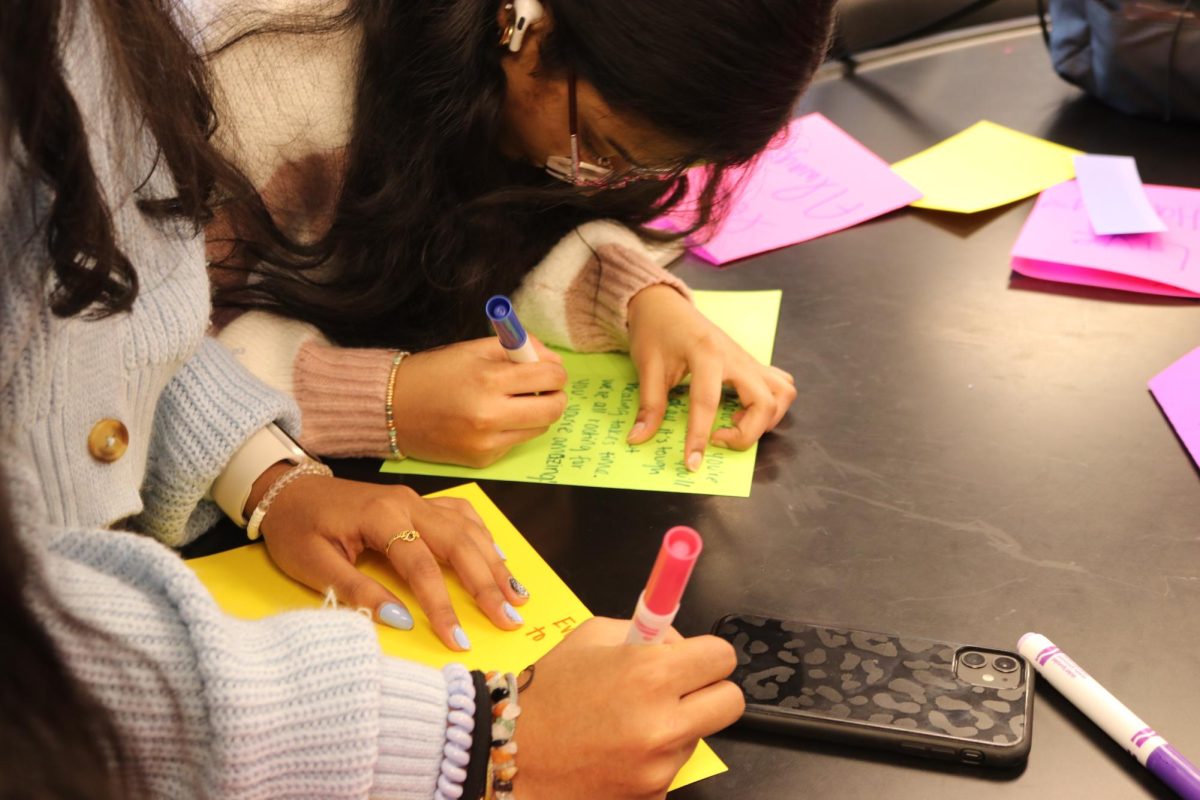During quarantine, Navin Ramamoorthy, junior, fell into a “slump” after being distanced from his friends and sense of regular life.
“I wasn’t depressed, I wouldn’t have diagnosed myself with depression, but I was just in a slump,” Ramamoorthy said.
Ramamoorthy said he felt unlike himself as he stopped taking part in his favorite pastimes, but overcame these feelings by participating in new activities like exercise and spending more time outside.
Ramamoorthy’s feelings aren’t uncommon in the U.S., causing the establishment of Mental Health Awareness Month in May in 1949.
Ramamoorthy said despite more awareness in the past decade, there is still a stigma around men’s mental health.
The Anxiety and Depression Association of America found that around 1 in 10 men face depression or anxiety but less than 50% seek treatment and help. This has contributed to men having suicide rates four times higher than women per year.
Ramamoorthy is part of the National Alliance on Mental Illness (NAMI), which he uses to bring attention to this issue.
“People, especially men themselves, they don’t really care about what they feel like. They just want to be tough. That’s how I look at it,” Ramamoorthy said.
During a club meeting on Monday, May 20, Ramamoorthy gave a presentation about the stigma surrounding men’s mental health. He said he chose the end of May for the meeting because June is Men’s Mental Health Awareness Month, and the school year ended too early to hold a meeting during June.
“I personally felt it. But I realized that I need to start talking to people if I want to solve a problem,” Ramamoorthy said.
After his experiences, Ramamoorthy recommends talking to others and addressing the problem early on to gain resources that will reduce the chance of the mental illness progressing.
“Communication is key,” Ramamoorthy said.

(Media by Anvi Talyan)
Sarayu Nemmadi, sophomore, attended the presentation, and has been part of NAMI since the start of the year.
“I thought it was a very interesting club and it promoted a lot of important things that I wanted to be a part of,” Nemmadi said.
Having loved ones who have dealt with mental health struggles, Nemmadi said she supports others by being open to listen to their feelings and providing support. She doesn’t give advice unless warranted because she said oftentimes the person just desires an outlet to vent.
Nemmadi said Mental Health Awareness Month is very important.
“A lot of people don’t take mental health as seriously as it should be taken,” Nemmadi said.
Katie Liebers, counselor, said she meets with students every day about mental health-related issues.
“The school counselors provide the level one, first tier of support for students,” Liebers said. “You know, if a student is having a bad day, kind of like a crisis situation, then they can come in here.”
Liebers said they mainly deal with lighter issues such as school stress, home life and relationships, while students with more severe issues are directed towards the social workers at MHS.
“They then provide that more intensive kind of wraparound support,” Liebers said.
Students can schedule appointments to discuss their struggles, but can still be directed toward a counselor during immediate times of crisis, Liebers said.
Liebers said discussions about mental health have become normalized, especially in the past decade. An issue that she noticed is more students now feel confident speaking about their issues and gaining help.
“People are seeing how prevalent it really is, and so I think that’s a good thing that people are feeling like this is a normal thing that humans experience and it’s okay to ask for support and seek that support,” Liebers said.
Liebers said she has experienced mental health struggles in the past when she made the transition from her home in Tennessee to starting college at the University of Georgia. She utilized resources provided by the university, similar to resources provided at MHS, to work through her negative feelings.
“It really just is such a common thing that people experience,” Liebers said.





